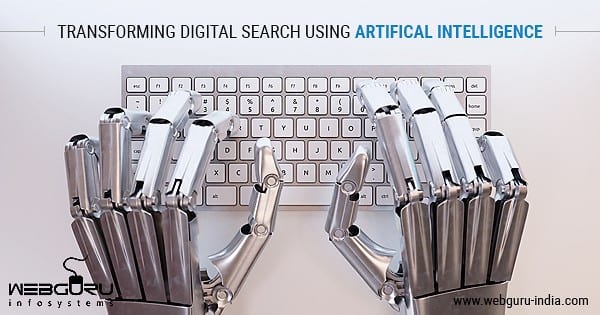How Artificial Intelligence Will Transform SEO



Artificial Intelligence (AI) is no longer just confined to autonomous vehicles and smart devices. It continues to make its way in every part of life, and digital marketing is no exception.
In SEO, AI has a constantly evolving role of identifying, sorting, and presenting information that most appropriately addresses search intents at a particular point in time. It uses numerous variables that extend far beyond keyword usage.
AI is first trained using known data that includes content, user behaviour, citations, links, trust, and patterns. Then, using machine learning, user experience, and big data, that data is analysed to establish new ranking factors that will produce results that meet user needs more precisely than ever.
Let’s dig deeper into how artificial intelligence will transform SEO:
The End of Keyword-Centric Contents
Gone are the days when you’d leverage keywords and rank high on Google. The search engine now uses a machine-learning AI system called RankBrain to rank search results.
This system relies on AI technology to convert an enormous amount of written language into mathematical characters. This is referred to as vectors, which only the computer can understand.
In case the system comes across a new word or phrase, RankBrain guesses words or phrases that might carry similar meaning and present the results based on that. This way, it can answer new queries like never before.
After links and content, this AI-powered system (RankBrain) is the 3rd most important factor in Google’s overall algorithm. This is because it has the incredible ability to analyse the search intent from a query and present the most useful content, which may not even contain the keyword or phrase used in the search.
Thus, instead of being repetitive with your keywords, pay attention to writing naturally. However, this doesn’t mean you should forget about adding keywords. Since Google can still rank a page based on the content it contains, you should definitely consider adding relevant terms naturally.
Understanding the Search Intent
Google has been focusing on improving its understanding of the search intent for a while now. Understanding search intent is not only knowing what the user is looking for but also figuring out why they are looking for it.
This is where the future AI integrations will work for Google algorithms. Think beyond the searched terms and what problem the user might be trying to solve through the query. However, it doesn’t stop here. You need to predict what a user might need once their initial search intent has been satisfied or answers to questions that might arise in the minds of users at any point.
All these aspects are expected to be covered by AI technology for Google. Plus, some deeper search intent variables need to be accounted for when presenting search results. These variables include:
- Time, date, and day of the search query
- Location
- Device,
- Voice Search or written text.
Depending on these variables, it is possible that the same query, asked under different circumstances, generates entirely different results on Google. AI will help understand the deeper search intent and deliver more focused results.
In short, to rank well on Google in the future, you need to have a clear understanding of how AI will transform SEO. The insights shared above can help you prepare for the future.






